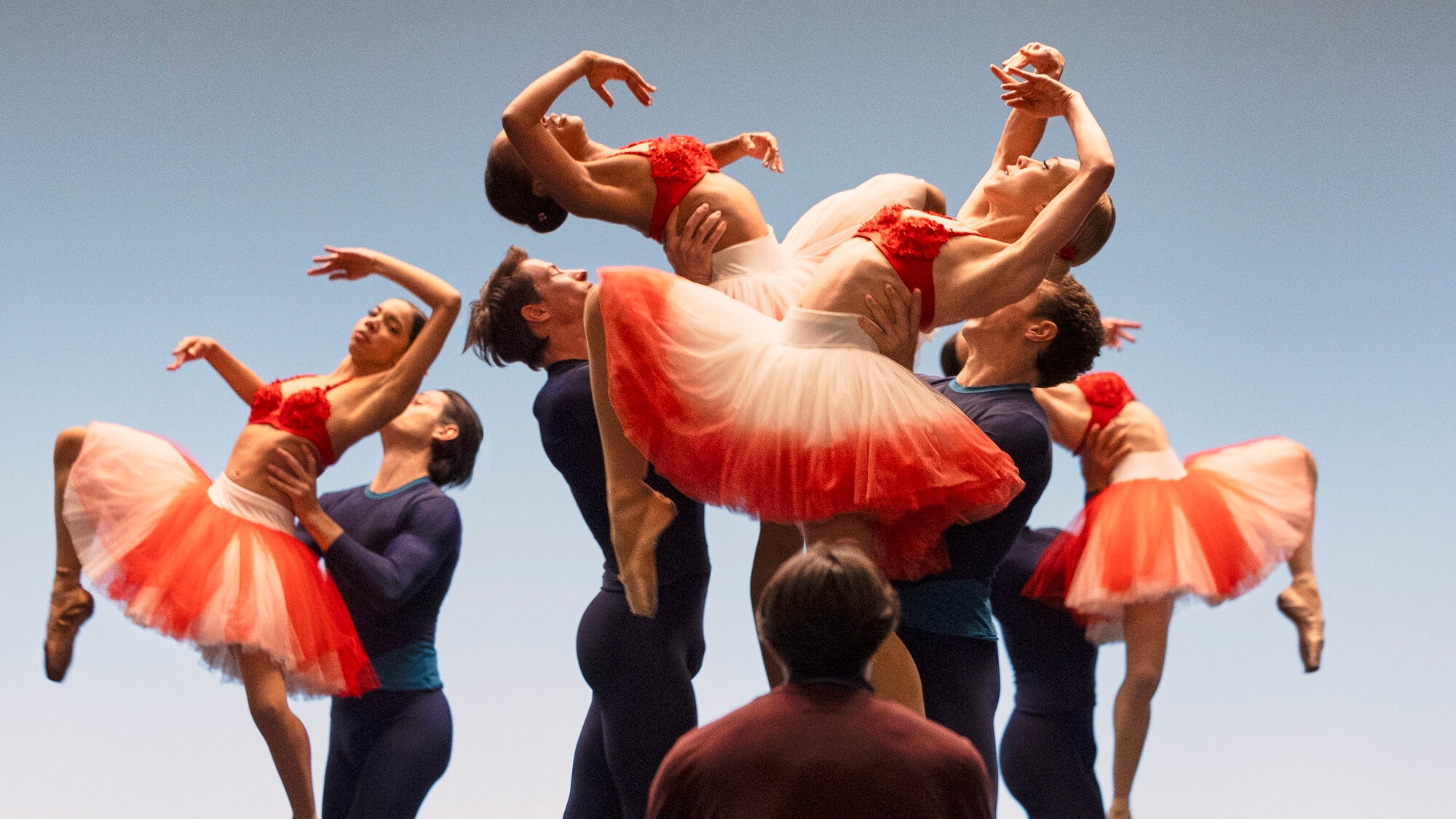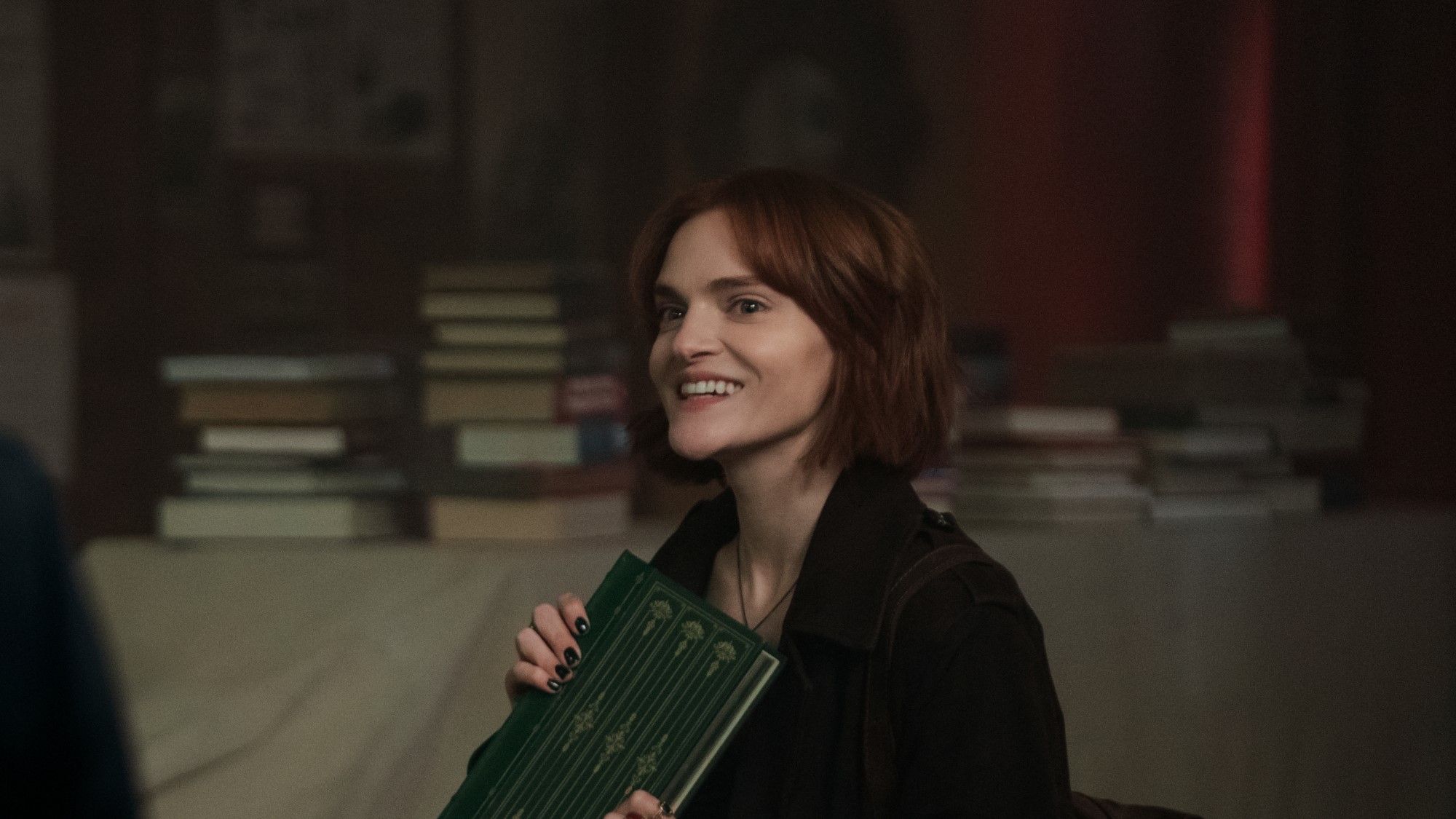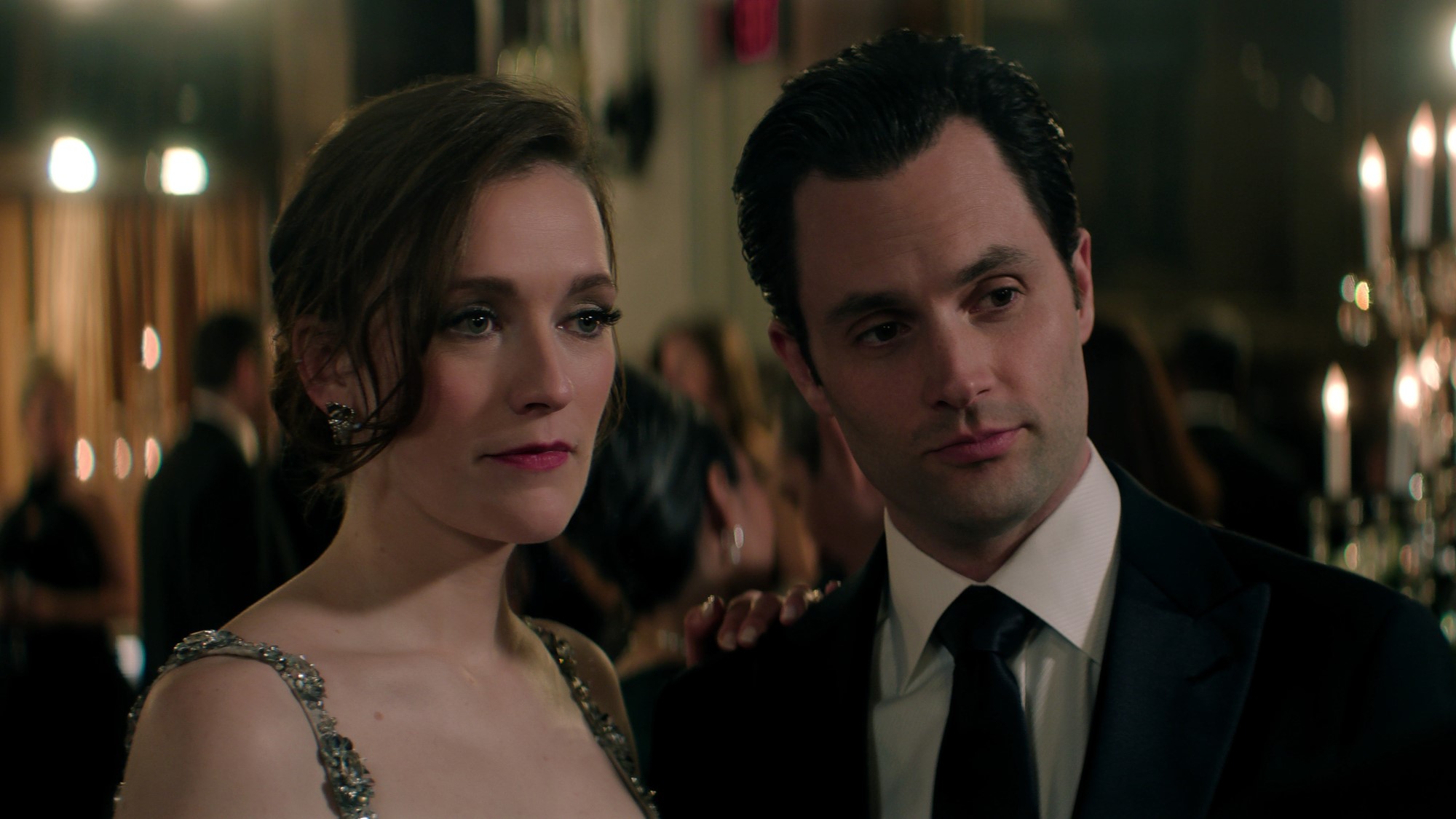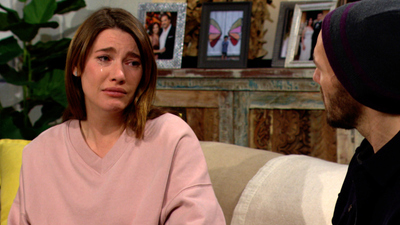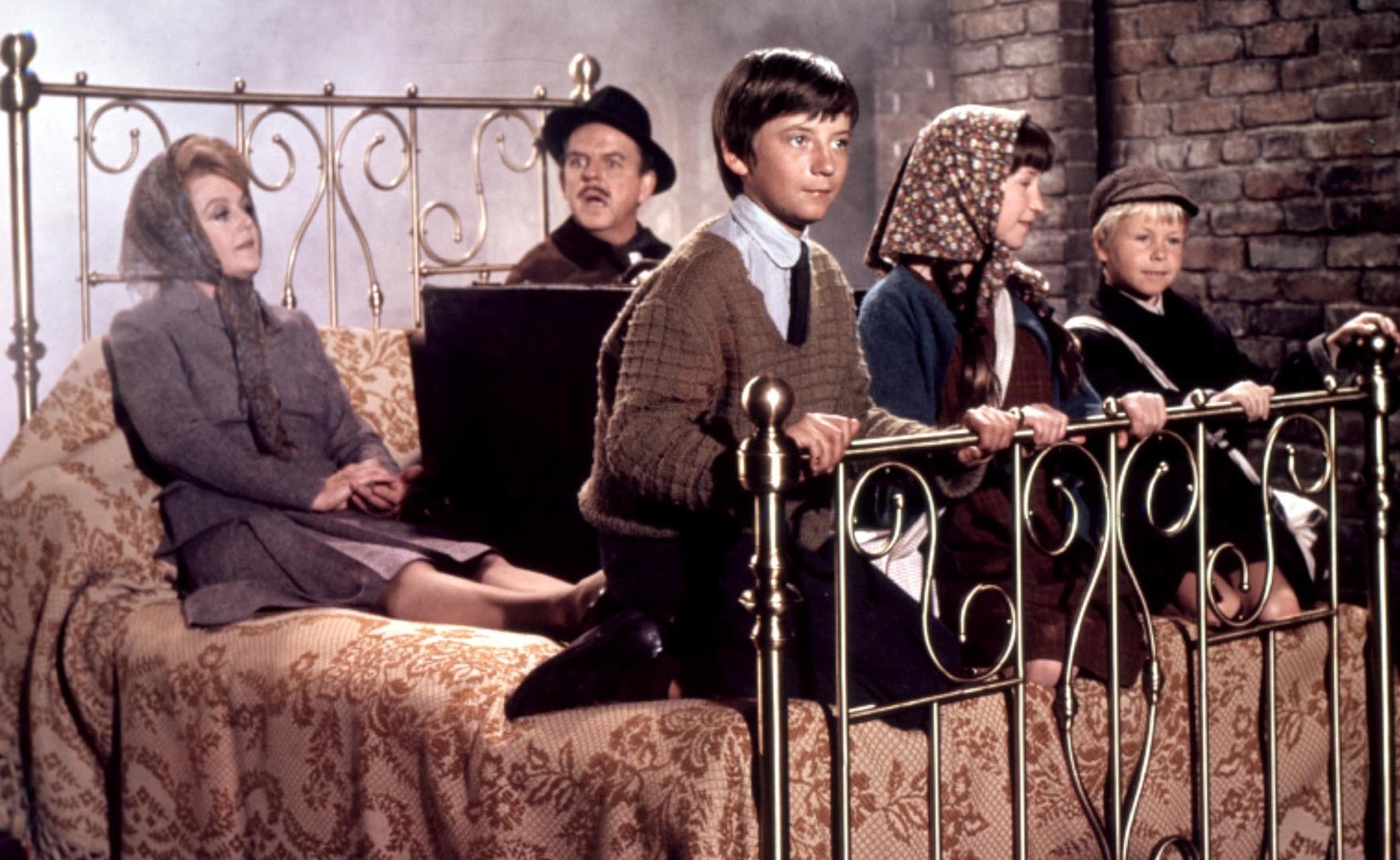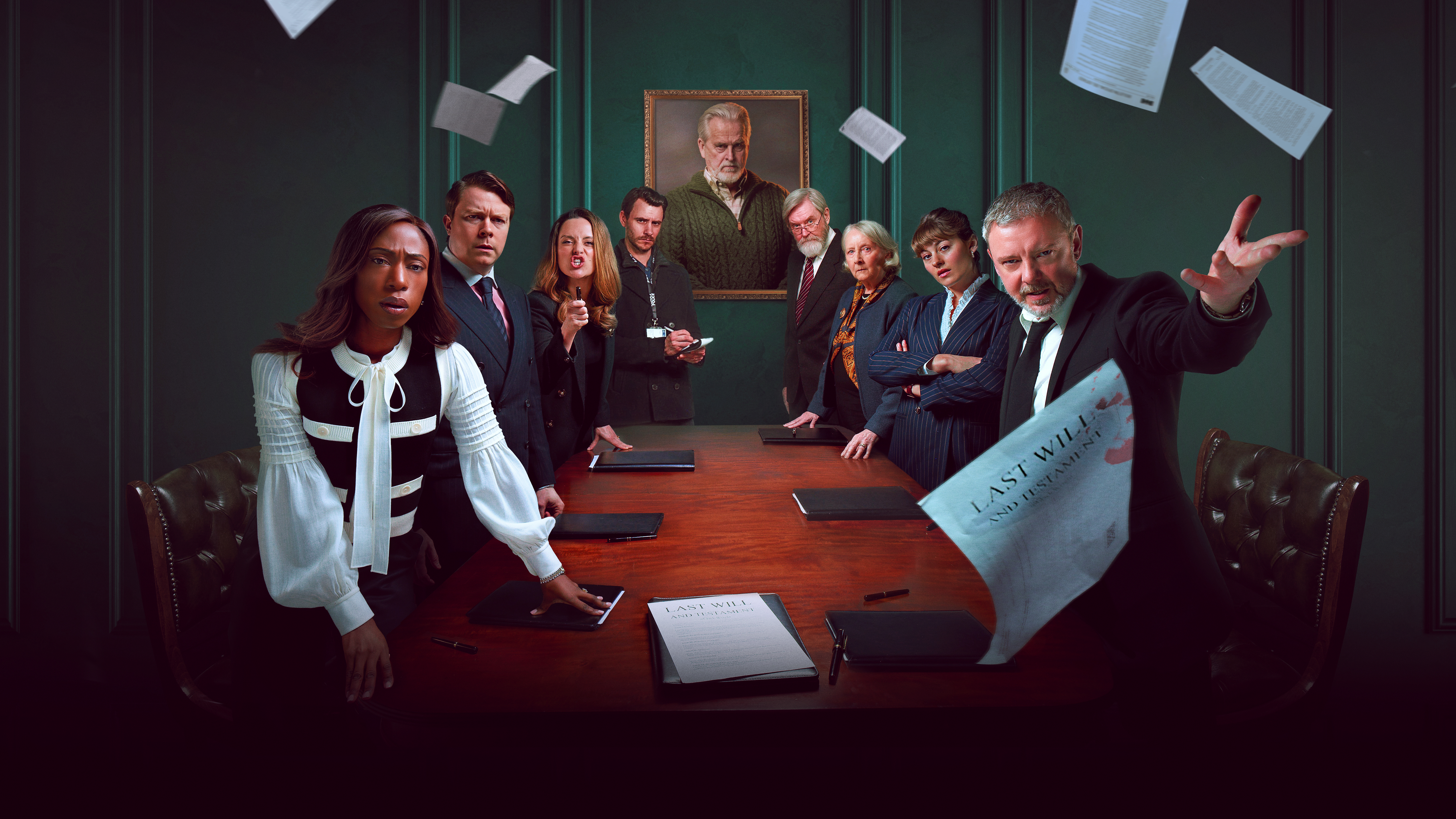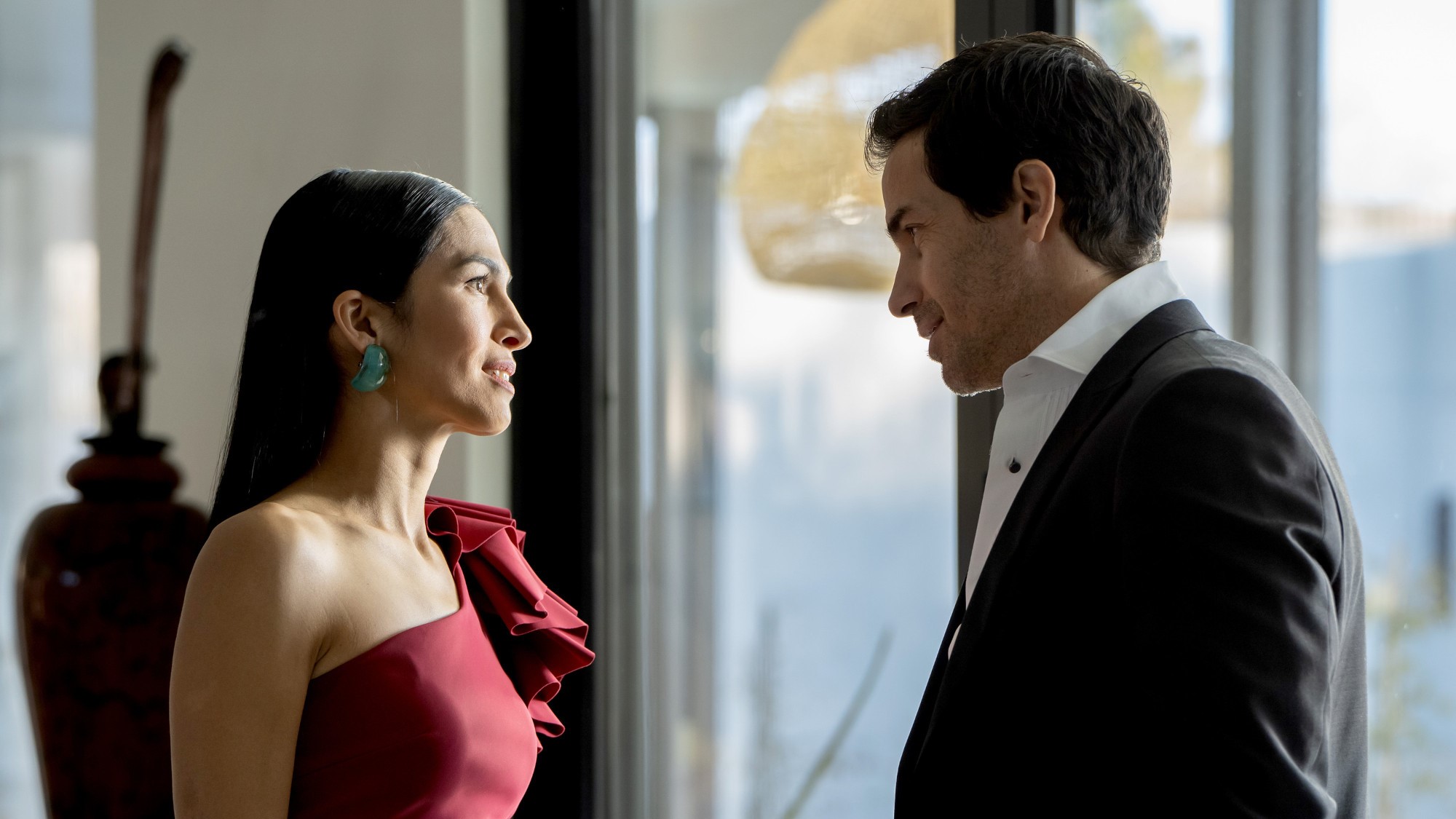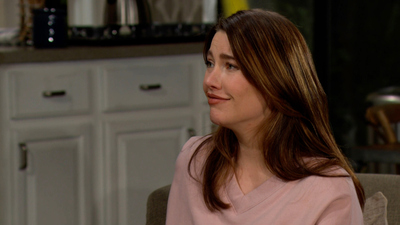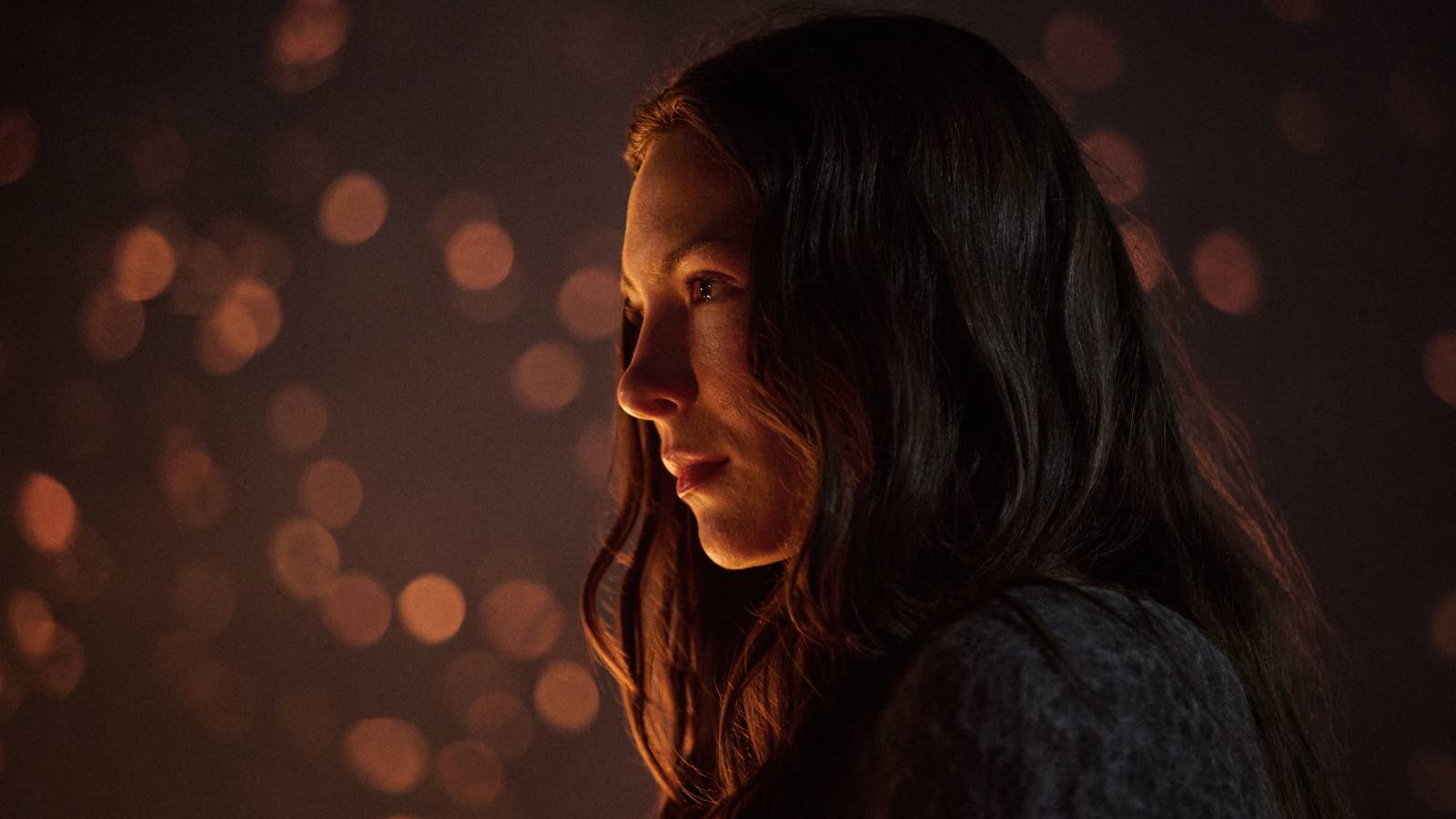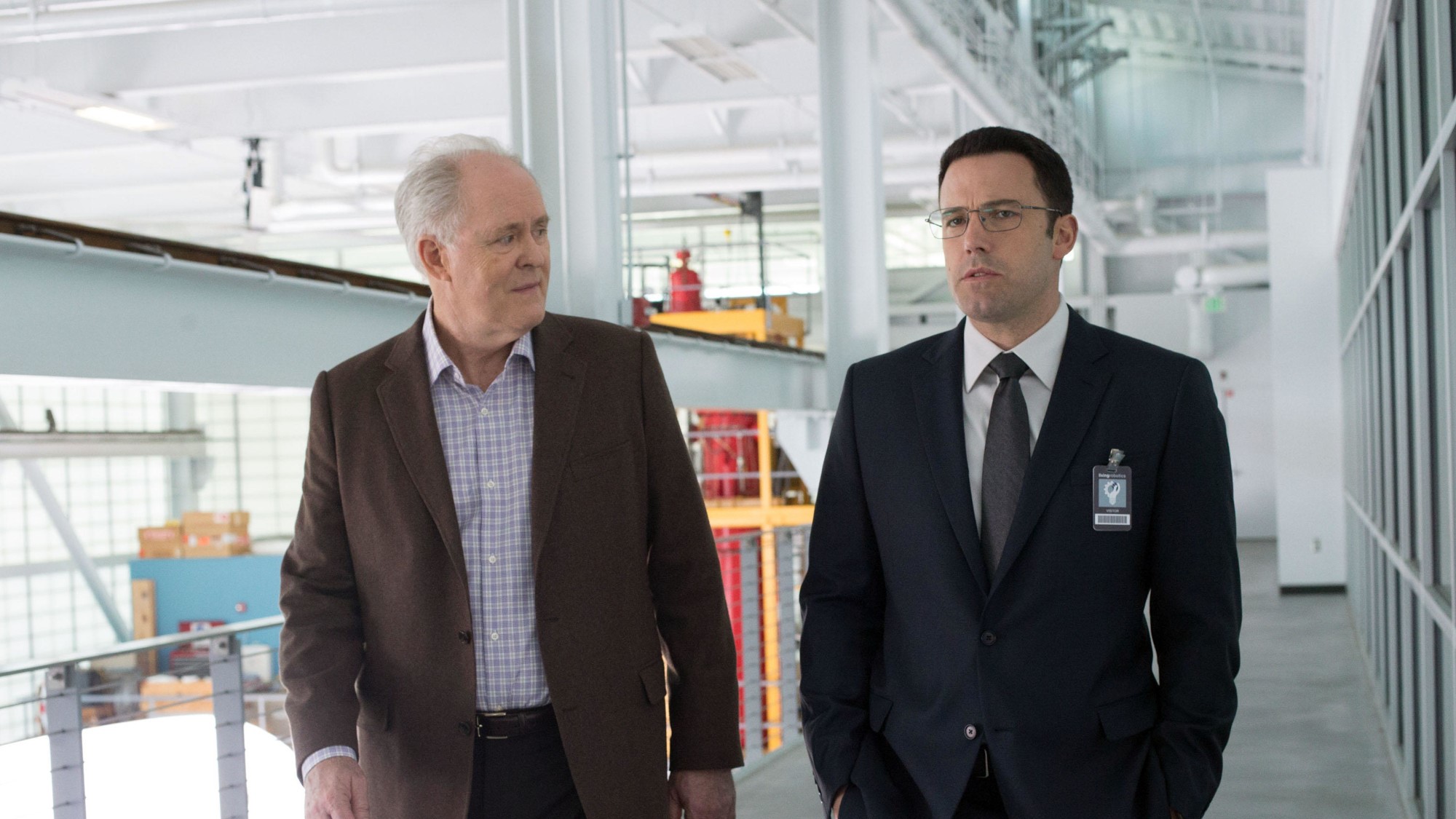Fact vs Fiction: The Offer episode 1 — did Francis Ford Coppola initially pass on The Godfather?
The Offer details the making of The Godfather, but we’re separating fact from fiction in this retelling.
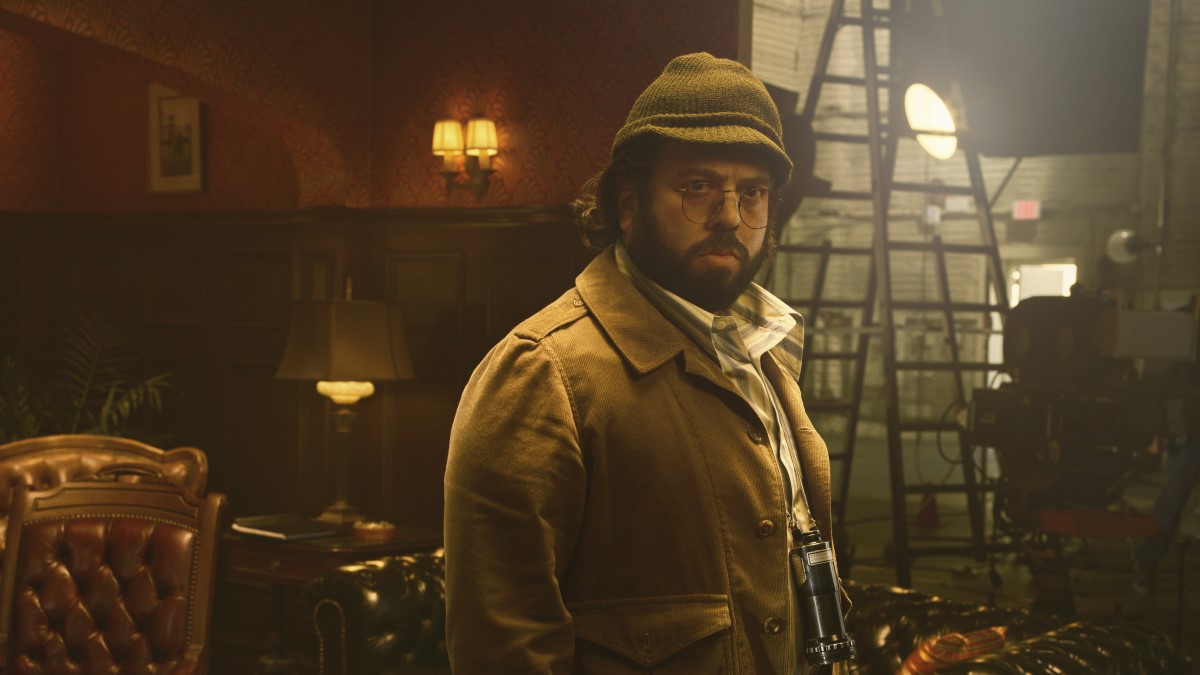
The Godfather is one of the most beloved and well-known movies ever made. The Offer — a limited series on Paramount Plus — digs deep into the story of how the all-time classic was made.
In this first episode, "A Seat at the Table," we get just about all the backstory we could possibly need. We see author Mario Puzo’s inspiration for The Godfather, how studio executive, Robert Evans, was wheeling and dealing to save Paramount Pictures, film producer Al Ruddy’s start, the rise of mobster Joe Colombo and the first elements of The Godfather (including director Francis Ford Coppola) coming together.
But how much of the episode is what really happened and how much is made up? We’re going to be separating what’s fact from fiction in The Offer. Here’s what you need to know about The Offer episode 1.
What was Mario Puzo’s inspiration for The Godfather?
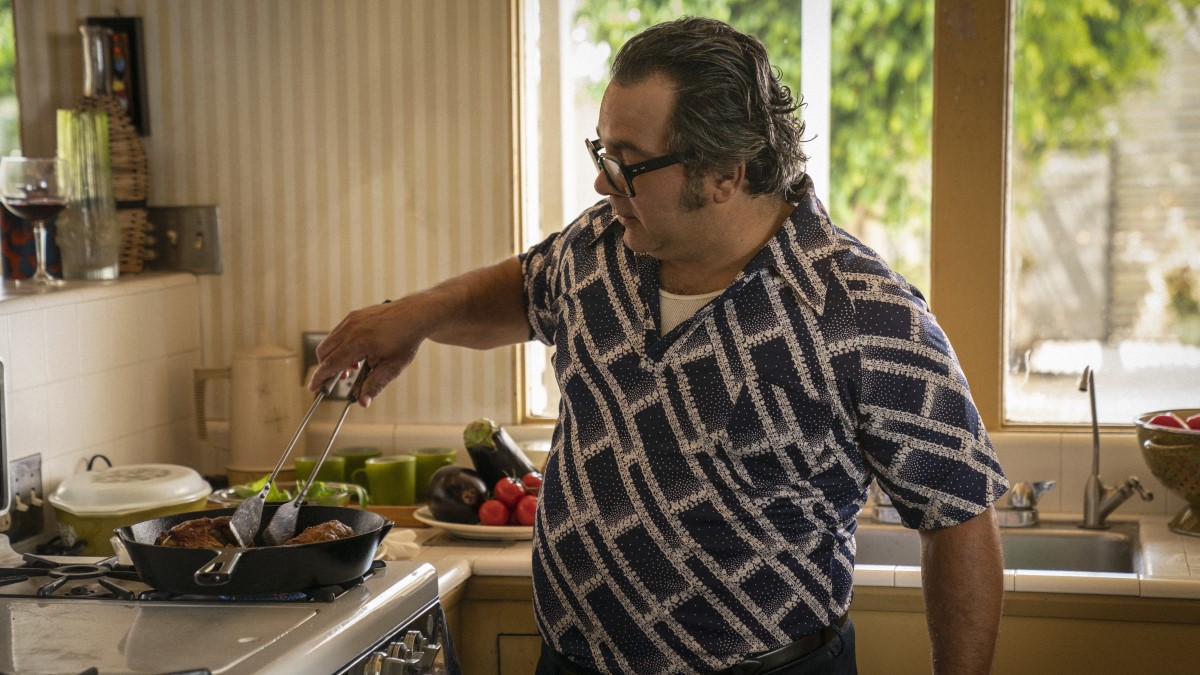
When we first meet Mario Puzo (Patrick Gallo), his latest book, The Fortunate Pilgrim, has tanked. To make matters worse, he’s in debt to a loan shark. Both his agent and his wife tell him his next book should be about something readers will find thrilling and that he has some insight on, the mafia. Puzo, inspired to put the focus on family rather than just crime, quickly types away at what he calls The Godfather.
Despite the failure of The Fortunate Pilgrim, Puzo’s son Anthony said in Mark Seal’s book, Leave the Gun, Take the Cannoli, that, "My father knew he could write a bestseller." However, it was editors, not his wife and agent, that pushed Puzo to put more of a focus on the mafia, according to his book The Godfather Papers and Other Confessions.
Writing The Godfather also wasn’t the quick work the show depicts. Initially called Mafia (the title The Godfather didn’t come until after he had sold the story to Paramount Pictures), Puzo actually stopped working on it for a while. According to Seal's book Puzo "didn’t really want to write The Godfather." His debts, however, forced him to finish. Once published, The Godfather became a sensation. It spent 19 weeks at No. 1 on the New York Times’ Bestseller List, 67 weeks in total.
Was Paramount Pictures struggling before The Godfather was a hit?
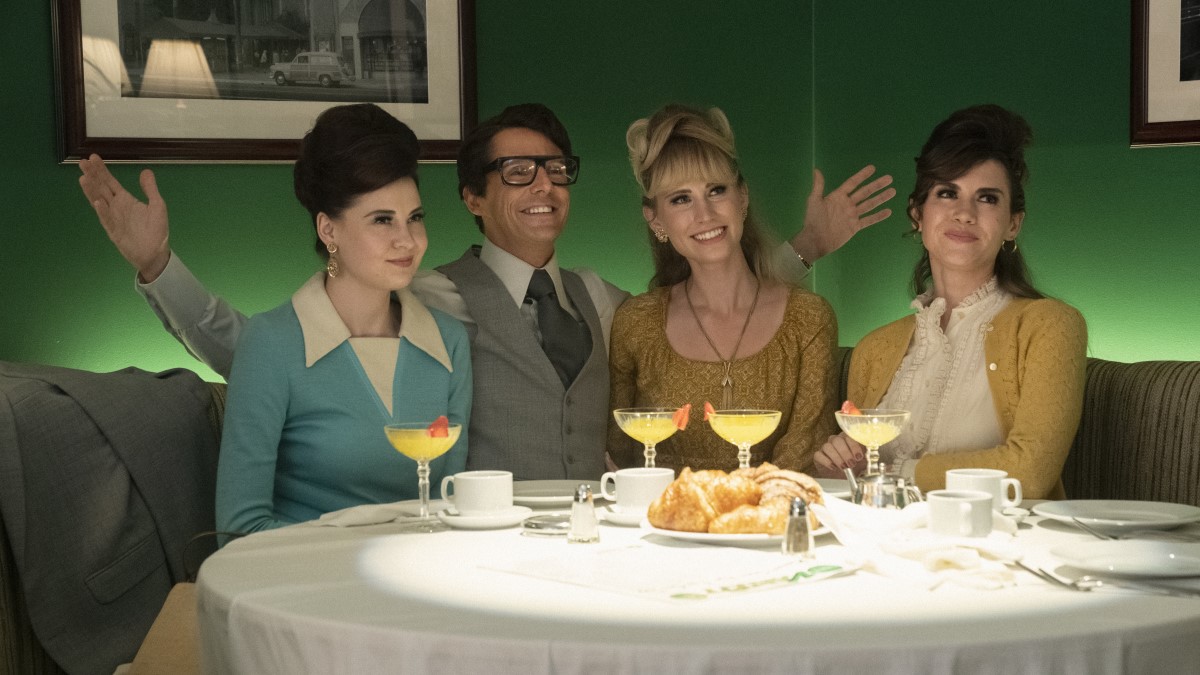
A lot of the premiere is spent with legendary Hollywood producer Robert Evans (Matthew Goode giving a very fun performance). As the head of Paramount Pictures, we see Evans working on movies like The Odd Couple, Love Story and Willy Wonka and the Chocolate Factory. Evans is constantly reminded the studio is on the brink of financial ruin. Was Paramount, one of the longest-running and historic Hollywood studios, in such dire straits in the 1960s?
Get the What to Watch Newsletter
The latest updates, reviews and unmissable series to watch and more!
Yes. Charlie Bluhdorn (Burn Gorman) bought the studio in 1966, weakened after it had to sell off its movie theater chain and struggling like many in an era where theatergoing was on the decline. Soon after, Bluhdorn brought in Evans to oversee the studio. Even with hits like Rosemary’s Baby and the three movies above, Paramount struggled.
This is why Barry Lapidus (a fictional character in the show, played by Colin Hanks) is eager to sell the rights to The Godfather when Jack Warner calls and offers $1 million for it. Such an offer did come for The Godfather, but not from Jack Warner. Instead, the offer came from Burt Lancaster who was hoping to star as Vito Corleone, as reported in Vanity Fair and Leave the Gun, Take the Cannoli.
Of course, Paramount refused and The Godfather ended up as a massive box-office hit — essentially saving the studio.
Did Al Ruddy lie about reading The Godfather before becoming its producer?
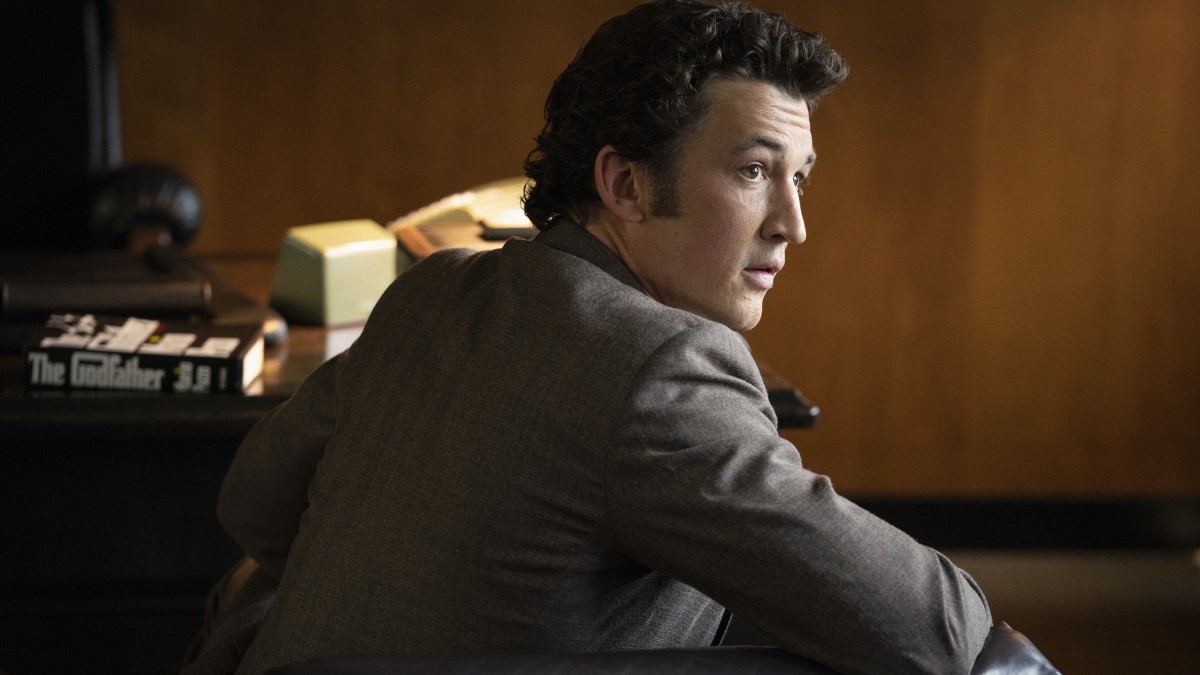
We learn early on that producer Al Ruddy (Miles Teller) established himself in Hollywood due to his ability to convince people to go along with whatever he was selling. But did this really include lying about having read The Godfather?
Ruddy did indeed work at a computer company before making the switch to entertainment, as the show depicts. He also did act out his pitch for Hogan’s Heroes to CBS. However, it wasn’t as impromptu as the scene in The Offer leads you to believe.
After producing a few movies at Paramount, Ruddy got a reputation for making successful movies on a low budget, which is what made him a candidate for The Godfather.
By Ruddy’s own admission, no, he had not read The Godfather before being offered the producer role and he did have to cram it before convincing Charlie Bluhdorn he was the man for the job. The scene between Ruddy and Bluhdorn in The Offer played out almost identical to what happened in real life, per Seal’s book.
Did Francis Ford Coppola initially pass on The Godfather?
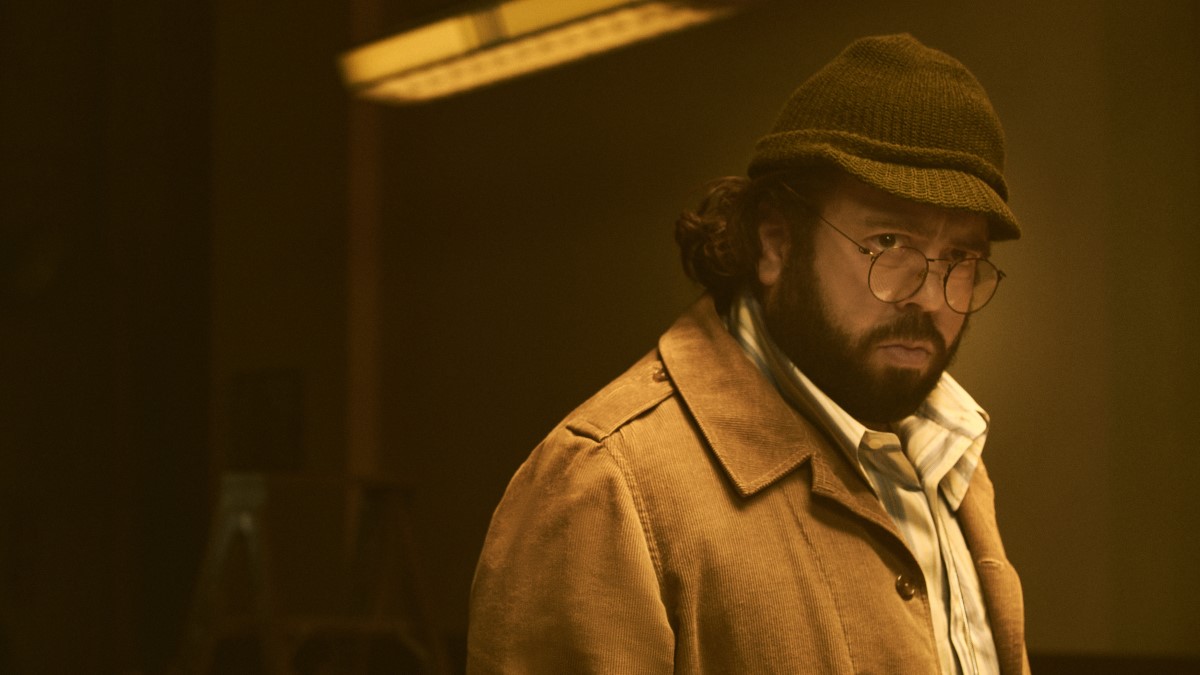
Once the ball got rolling on The Godfather, Mario Puzo was brought to Hollywood to write the script. His confrontation with Sinatra shortly after arriving did actually happen and was the spark for The Offer creator Michael Tolkin to make the show. What they still needed was a director. Many of their first choices turned them down, including Francis Ford Coppola (Dan Fogler).
At the time Coppola was not a big name and was struggling with his independent production company, American Zoetrope, at the time. Even so, he didn’t want to make The Godfather — he’s said on multiple occasions (including to NPR) that he couldn’t even make it through Puzo’s book the first time he tried to read it.
It was actually one of Coppola’s fellow filmmakers at American Zoetrope — a young George Lucas — who helped convince him to reconsider. Coppola took the job and found the movie that would come to define his entire career.
Did Joe Colomobo start the Italian American Civil Rights League because of The Godfather?
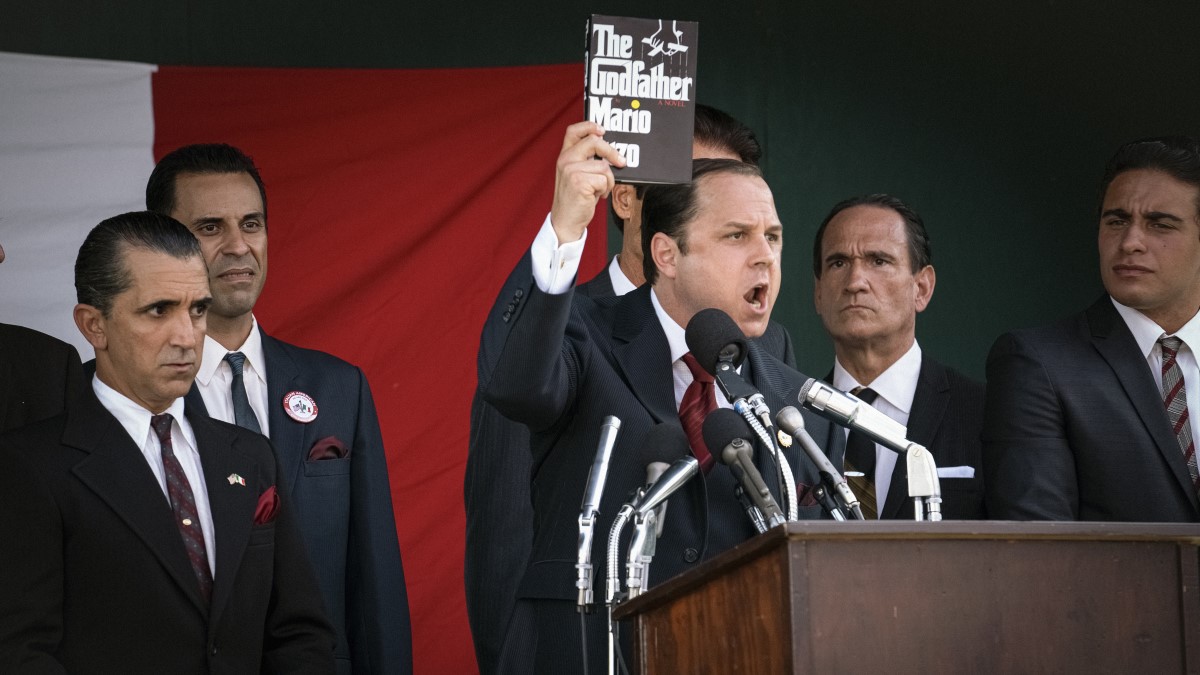
Away from Hollywood, The Offer’s opening episode focuses on Joe Colombo’s (Giovanni Ribisi) rise to lead a New York City crime family. Colombo was a real-life mobster who became the head of one of New York’s Five Families in 1964.
Once in charge, Colombo puts The Godfather in his crosshairs, describing it as "bad for business." Later, with the book still at the top of the bestseller list and the movie on the way, Colombo says he'll start the Italian-American Civil Rights League to defend Italian-Americans against unfair portrayals, like in The Godfather.
In reality, Colombo did help start the Italian-American Civil Rights League, but The Godfather was not the driving force. Instead, it came about primarily because Colombo and others believed the FBI had coined the phrase "mafia" to stigmatize and persecute Italian-Americans, including members of his own family. Colombo’s son was charged with melting down silver coins, which led to one of the first protests of the Italian-American Civil Rights League outside of FBI headquarters.
Though the League did ramp up the pressure on The Godfather production, as we begin to see in the closing moments of episode 1, largely again to refute the perception of the "mafia" and its negative impact on Italian Americans.
All episodes of The Offer are now available to stream on Paramount Plus in the US and UK.

Michael Balderston is What to Watch’s assistant managing editor and lead movie writer, covering movies coming to theaters, writing movie reviews and highlighting new and classic movies on streaming services; he also covers a range of TV shows, including those in the Taylor Sheridan universe, Slow Horses, Only Murders in the Building, Jeopardy!, Saturday Night Live and more, as well as the best ways to watch some major US sporting events.
Based outside of Washington, D.C., Michael's previous experience includes writing for Awards Circuit, TV Technology and The Wrap.
Michael’s favorite movie of all time is Casablanca, while his favorite TV show is Seinfeld. Some 2025 favorites include One of Them Days and Black Bag for movies, and The Pitt on TV. Follow on Letterboxd to keep up with what I'm watching.
